With the rise in popularity of cannabis derived products, we reviewed the evidence discuss cannabis and pregnancy and whether or not it is safe for expecting mothers and their children.
One product that has generated a lot of interest in the wellness space is cannabis. Heck, even Coca-Cola is looking into the possibility of making a drink containing the “medicinal” compound!! But with the rise in popularity of cannabis, what do expecting mama’s need to know about the risks of cannabis and pregnancy before they consider using it?
We take a deep dive into the research on cannabis and pregnancy while also providing some helpful insights from Dr. Jennifer Hirsch, a Pregnancy and Post-Partum Psychiatrist at Mount Sinai Hospital in Toronto!
Cannabis 101
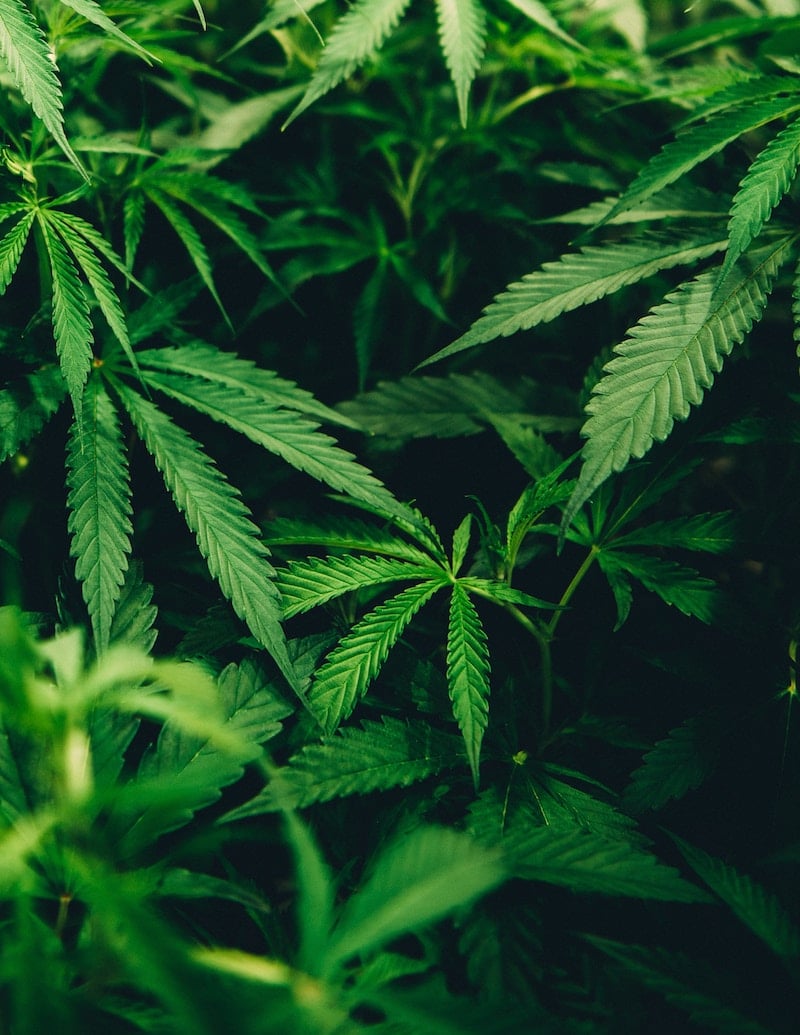
There are over 70 active compounds in cannabis, also known as cannabinoids. The two biggies are tetrahydrocannabinol (THC) and cannabidiol (CBD). THC is the psychoactive compound that produces a “high”, while CBD does not contain any psychoactive properties but rather has been shown to have some therapeutic properties.
Therapeutic Benefits of CBD Oil
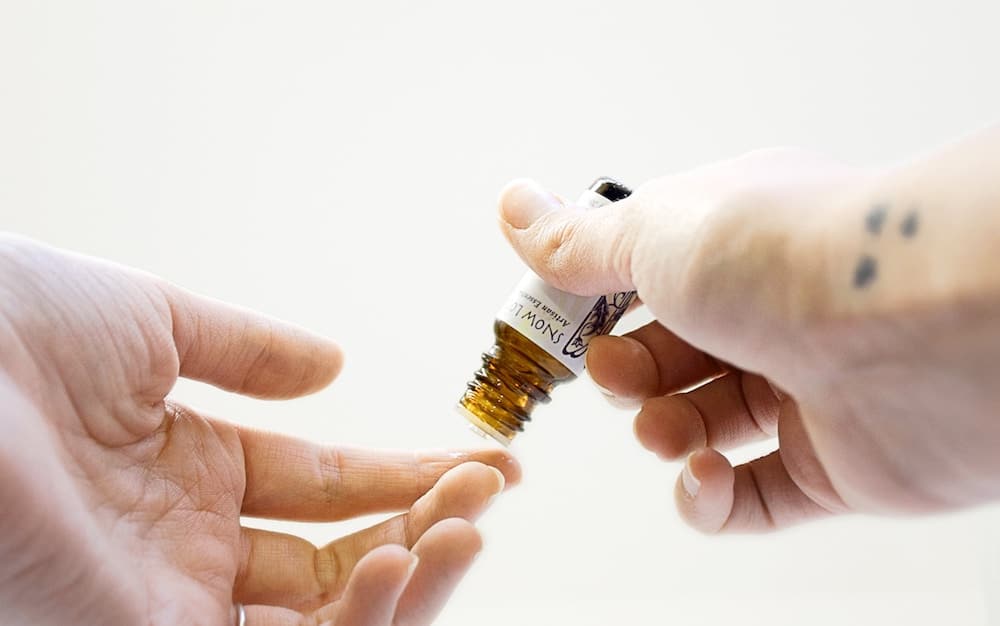
To start with, CBD has antioxidant and anti-inflammatory effects, and is considered neuroprotective. In other words, it may help guard the cells of the brain from damage. In the early literature, CBD has been investigated for its possible effects in reducing anxiety and symptoms of social phobia and post-traumatic stress disorder. One exploratory 2012 study found that it was as effective in treating schizophrenia as standard anti-psychotic medications!
CBD has also been used to alleviate symptoms associated with Tourette’s syndrome, Crohn’s disease, fibromyalgia and pain associated with multiple sclerosis. CBD oil has even been used to help reduce the nausea associated with chemotherapy.
Now, let’s back it all up for a hot minute here. Before you light up a dube, it’s important not to jump the gun. There is still very little research on CBD, and much of the existing research out there was done on animals rather than humans. In other words, it’s not solid stuff.
In terms of official statements, Health Canada provides a hefty list of potential therapeutic uses for cannabis. They also point to the limited number of studies demonstrating the safety and efficacy of cannabis products to address any specific illness. The word “potential” is key here. With that said, more human research is needed before any conclusive health claims can be made.
Is Weed Safe During Pregnancy?
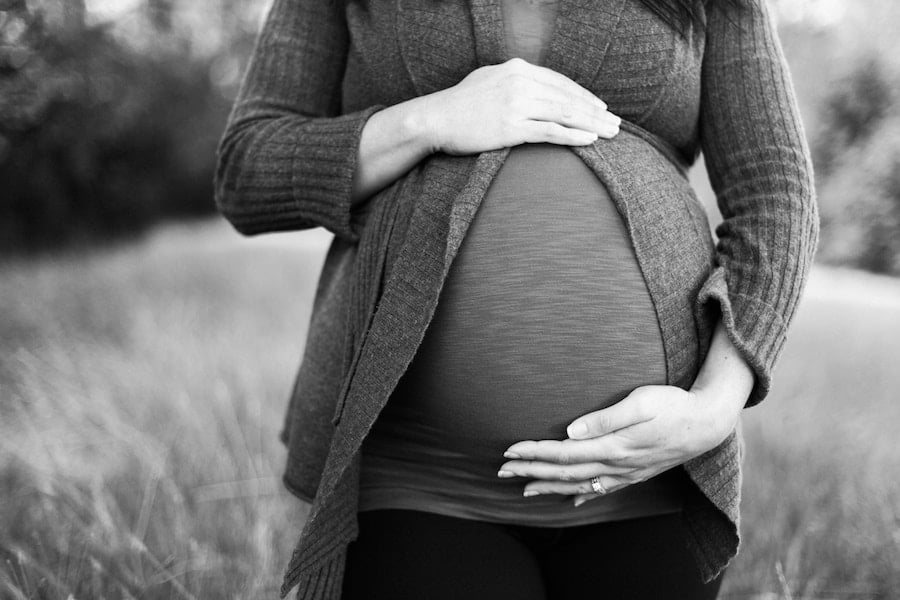
Why might mothers want to use weed or cannabis products while pregnant or breastfeeding? Well, Dr. Hirsch had this to say.
“Increasingly in my practice, women are informing me that they are already using various forms of cannabis during their pregnancy or while breastfeeding. Although there is no high-quality research on its effectiveness, many pregnant and breastfeeding women believe it may be helping their nausea, anxiety or insomnia.”
During pregnancy, it seems some mothers use cannabis to help with morning sickness. After birth, women may use cannabis products to address postpartum depression. But Dr. Hirsch is quick to mention that cannabis can interfere with antidepressant medications, and can cause anxiety, paranoia and hallucinations.
But just how many moms are turning to CBD and other cannabis products? According to a 2012 study that looked at 25,000 women, 2.6% of them reported using cannabis while pregnant. That was, admittedly, a long time ago, so it’s very possible that number is much higher now. The study also controlled for confounding factors like smoking, alcohol consumption and other illicit substances. However there are other factors that were not controlled for. Self reports are a limitation since people tend to under report their drug use. What is maybe more relevant here is that these mothers were twice as likely to have babies who were small for their gestational age and to be admitted to neonatal intensive care.
The Dopamine Effect
Even more alarming was that it would seem cannabis use during pregnancy can disrupt the developing neurotransmitter systems in the baby’s brain. This may impact the neurotransmitter dopamine. Dopamine imbalance has been shown to increase the risk of depression, schizophrenia and drug addiction. At this time, most doctors would not see it as worth the risk.
Cannabis and Pregnancy Health Risks
When asked about the risk of cannabis and pregnancy, Dr. Hirsch brings up the Ottawa Prenatal Prospective Study. This study began in 1978 with pregnant women and followed their 180 children for a number of years. They wanted to examine the effects of cannabis use during pregnancy on children.
“After age 4, there were differences in behavioural problems and decreased performance on visual perception tasks. As well as language comprehension and sustained attention and memory difficulties in exposed children,” says Dr. Hirsch.
She also provided this juicy piece of info – THC content in today’s cannabis is around 10 times higher than it was during the 1970s, when the study started!
Moreover, 2019 retrospective cohort study looked at 5600 self-reported cannabis users to assess the impacts of maternal cannabis use during pregnancy and its correlation with adverse birth outcomes. The study found that mothers who used cannabis during pregnancy had elevated rates of pre-term birth, preeclampsia and gestational diabetes.
Similarly, another 2020 review reported that cannabis in pregnancy increased the likelihood of low birth weight, neonatal ICU admission, preterm birth, and behavioural consequences such as startling and tremors. In addition, behavioural and cognitive deficits are common long-term impacts of prenatal cannabis exposure.
Is Weed Safe WHILE BREASTFEEDING?
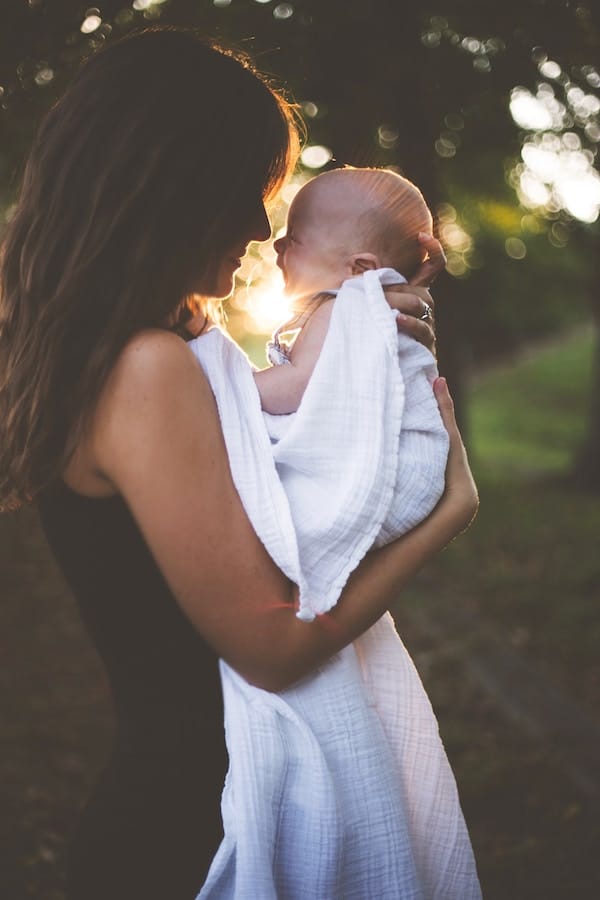
THC and CBD are detectable in human breastmilk as early as 1-4 hours after use and up to 6 days after cannabis use. This finding suggests that the method of “pumping and dumping” breastmilk after cannabis use would not be effective in ridding the cannabinoids from the breastmilk, as they are present in breastmilk for an extended period.
Similarly, another study analyzed 54 breastmilk samples from 50 mothers who used cannabis while breastfeeding. The researchers were able to detect THC in 63% of the samples analyzed up to 6 days later! The samples contained an average of 9.5 nanograms per millilitre of THC. To put that in context, the Government of Canada’s Bill C-46 proposes that any blood levels of THC higher than 5 ng/mL be considered impaired driving. So the women’s milk samples had almost double the allowable amount!
On the other hand, THC has an oral bioavailability of no more than 12%. This means that if ingested (as in breastmilk), less than 12% of it will be absorbed into the baby’s bloodstream. Would these small amounts affect a baby? It’s (unfortunately) very likely. Another study found that infants exposed to THC in breastmilk had decreased motor function by the time they were one year old. Yikes!
cannabis & lactation
While the research on cannabis and pregnancy isn’t looking too great, what do we know about cannabis and breastfeeding? If you’re like me and you have struggled with breastmilk supply, you’re going to want to listen up.
Studies in both animals and humans have shown that cannabis use in lactating mothers might reduce levels of prolactin. This is the hormone that promotes lactation in response to suckling. The result? Cannabis may cause a decline in breastmilk production overall.
CBD vs THC in Pregnancy and Breastfeeding
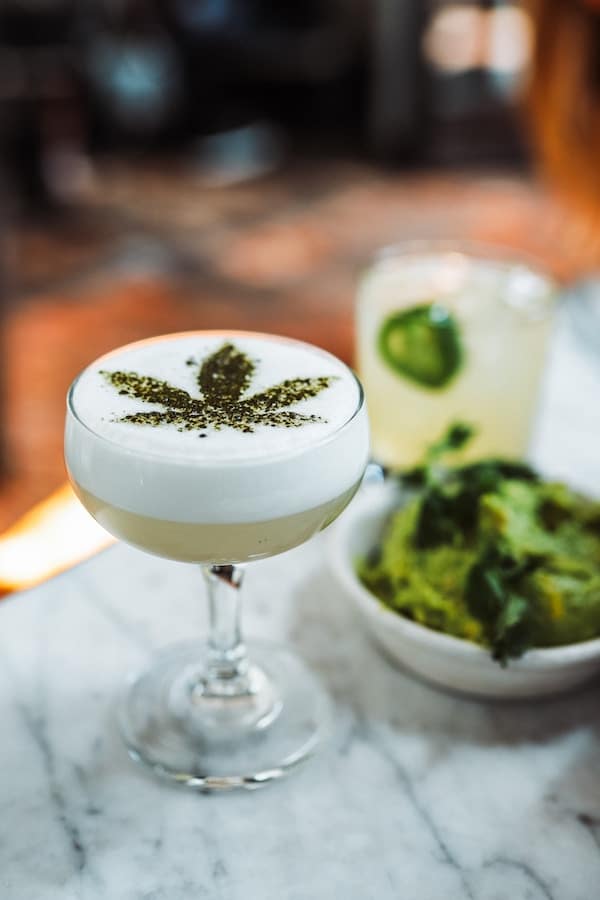
Okay, okay. So you might be getting the sense that we’re not super gungho about moms or mom-to-be’s smoking up on the regular. But what about CBD, the innocent (and potentially therapeutic) cannabinoid cousin of THC?
Well, at the moment, there’s pretty much zero research on the effects of CBD on infants of pregnant or breastfeeding mothers. Heck, at this point, there’s not even sufficient data on plain ole’ marijuana and breastfeeding. Of the 54 breastmilk samples analyzed at UC San Diego, only 5 of them had detectable levels of CBD. However, these samples came from mothers using cannabis, not CBD oil. This study tells us that CBD is in breastmilk. However, we don’t know how much CBD ends up in the breastmilk of a mother taking CBD oil. Also what effects, if any, exposure to CBD during breastfeeding might have on infants.
cbd in epilepsy treatment
However, CBD is gaining traction as a potential treatment for pediatric epilepsy. Recently, a drug composed of pure CBD was approved by the US FDA for use in seizures. This fact, combined with the fact that CBD is not a psychoactive compound, has forced the US Drug Enforcement Administration to move toward reclassifying CBD from a Schedule I (addictive substances with no medicinal use) to a Schedule II or III (less restricted categories). With a more relaxed law around the use of CBD, there will likely be more research into this potentially exciting compound. Hopefully, some more hardline answers about its effects on infants.
labelling requirements
In the meantime, there are a number of CBD oil products on the market with different ratios of CBD and THC. This can all be overwhelming or confusing, especially to first-time consumers. In advance of cannabis legalization, Health Canada has put forth proposed labeling requirements. This is so that consumers could theoretically better control the concentration, and ratios they’re getting.
They’ve also imposed a legal limit for THC content – 30 mg/mL of THC in any cannabis oil product, and 10mg/dose of all other ingestible products. Natural health products (NPHs), such as hemp or CBD oils, will be allowed THC concentrations no higher than 10 parts per million.But is this enough?
Dr. Hirsch isn’t sure.
“Cannabis strength remains highly variable even within the same dispensary and often a very different concentration than labeled. It is uncertain how legalization will impact this as much of the cannabis is already approved in Health Canada licensed facilities.”
Dr. Hirsch also points out that cannabis products can contain harmful mould or pesticides!
” Some people carry a genetic variant making it difficult for their immune system to clear molds. This makes smoking or vaping potentially dangerous to a developing fetus, risking exposure to mycotoxins such as Aspergillus. Honestly, so many pregnant women I speak to are worried about eating unpasteurized cheese, or sushi, or even certain teas, this seems like a much bigger risk to take.“
Bottom Line
So what is the bottom line in cannabis and pregnancy?
Unfortunately, at this time, there’s no straightforward answer. The most recent recommendations, from the Society of Obstetricians and Gynaecologists of Canada (SOGC) warn pregnant and breastfeeding women against the use of cannabis. However, their concerns stem from the possible effects of THC, not CBD, on babies.
The SOGC acknowledge that many women (as many as 70%) see no major danger in using cannabis occasionally during pregnancy and breastfeeding. However, when it comes to THC, the research so far doesn’t support its safety during pregnancy or breastfeeding. Dr. Hirsch points to rampant misinformation by saying this.
“Much like alcohol and tobacco, just because a cannabis is legal and natural, doesn’t guarantee it is safe for your baby.”
And as for CBD, the jury’s still out. While you should definitely speak to your doctor about your options, it seems that most would agree that pregnant and breastfeeding moms should abstain until we have more definitive studies.
Contribution by Adam Weinmann, RD2B
Updated on January 19th, 2022

Abbey Sharp is a Registered Dietitian (RD), regulated by the Ontario College of Dietitians. She is a mom, YouTuber, Blogger, award winning cookbook author, media coach specializing in food and nutrition influencers, and a frequent contributor to national publications like Healthline and on national broadcast TV shows.
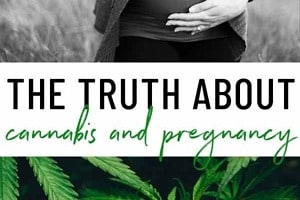
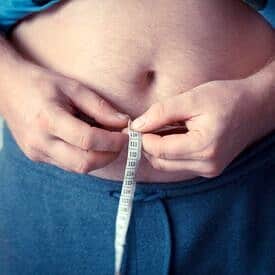
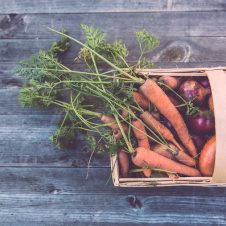


Jim says
Thank you for this post. My wife was a cannabis smoker for a long time before she got pregnant. We weren’t sure how to go about this, as it really helps with her naseau and chronic pain. We decided to have her stay off it most the time, from you article and this one we had previously read (https://cbdeducationonline.com/cbd-oil-and-pregnancy-research-studies-risks-benefits/), I think it was a good idea.
This topic is something that needs more light to be shed. I know cannabis has a lot of benefits, but we need more scientific research.
Thank you so much for posting this content, it has helped me and my wife immensely.
Jim
Abbey Sharp says
Thanks so much for sharing Jim.
Angela says
Oh wow! I know there are many benefits to it, but I would not have considered the thought of using it during pregnancy or breastfeeding. Sounds like much more research is needed there!!
Abbey Sharp says
Yes, totally agree.
jill conyers says
It’s too inconclusive at this point. I’d have to go with abstaining. Why risk it?
Abbey Sharp says
Yup, definitely need more research
Kelly says
CBD is popping up everywhere. I know there are some people who have seen great results using it, but sounds like more research is needed for pregnant and breast feeding mothers.
Abbey Sharp says
Yup, I think so too.
Farrah says
As always, such a great informative post! It may be a while before they’re able to do much extensive research on the safety of THC/CBD on pregnant/breastfeeding moms!
Abbey Sharp says
Yes definitely. Need some more longer term high quality ones.
Marie Timez says
They’ve actually done many case studies on marijuana users during pregnancy. You just have to research it..many of these cases were done in Jamaica and California. They found that children of marijuana using mothers had no adverse effects. They were actually less irritable than those of mothers who didn’t. The children did not develop any differently.
Deborah Brooks says
wow I am sure this is quite a controversial topic! No one talked about this when I was pregnant 20 years ago
Abbey Sharp says
Yes, it definitely is!